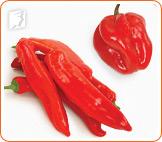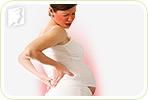
If you're a menopausal woman who suffers from hot flashes, controlling your body temperature in the winter months can be tricky. One minute you're outside shivering bundled up in your winter jacket and gloves, and the next you're tearing at your clothes after experiencing a hot flash. Being unable to control your body temperature may leave you feeling frustrated and defeated. However, these hot and cold flashes do not need to be a permanent fixture in your life.
What Causes Hot Flashes?

In menopausal women, the most common cause of hot flashes is hormonal changes, mainly changing levels of estrogen. Reduced estrogen levels affect the hypothalamus, which is responsible for moderating body temperature. Lower estrogen levels cause hot flashes, but hot flashes can be triggered or worsened by other factors, such as spicy foods, hot beverages, stress, and overheated spaces. You can combat hot flashes in the winter by:
Dressing for every season

While the temperature outside is below freezing, your internal temperature may be at its boiling point. A good way to balance these two extremes is to dress in layers. When you get dressed in the morning, take into consideration the variable body temperatures you may experience throughout the day: layer your look with a combination of short- and long-sleeved pieces that can be easily removed at home or in the office.
Setting your thermostat a few degrees lower
This may sound like counterintuitive advice for winter, but it's easier to bundle up in removable sweaters and blankets if you feel cold than to change the temperature of an entire room when experiencing a hot flash. This will also allow your body to have an easier time adjusting to temperatures when going from outdoors to indoors. Unfortunately, you cannot always control the thermostat at the office or in social environments, so it's a good idea to carry a small fan in your purse for these occasions.
Drinking warm beverages slowly

While coffee, cider, tea, and hot cocoa are tempting in cold temperatures, try to sip them slowly, as hot beverages can trigger hot flashes. Try getting a glass of ice water with a hot beverage in order to help balance out the temperature.
Advice on Dealing with Hot Flashes
If your hot flashes are lowering your quality of life, it is important to talk to your doctor, who can offer you personalized advice and treatment. Click on the following link to learn more about lifestyle, alternative, and pharmaceutical treatments for hot flashes.
Sources
- Sikon, Andrea and Holly Thacker M.D. "Treatment for Menopausal Hot Flashes". Cleveland Clinic Journal of Medicine. July 2004: 71 (7).
- "Hot flashes ... in January". Canadian Medical Association Journal. 2004: 170 (1).
- Miller, Heather and Rose Maria Li, M.D. "Measuring Hot Flashes: Summary of a National Institutes of Health Workshop". Conference report. Mayo Clinic. June 2004: 79.



